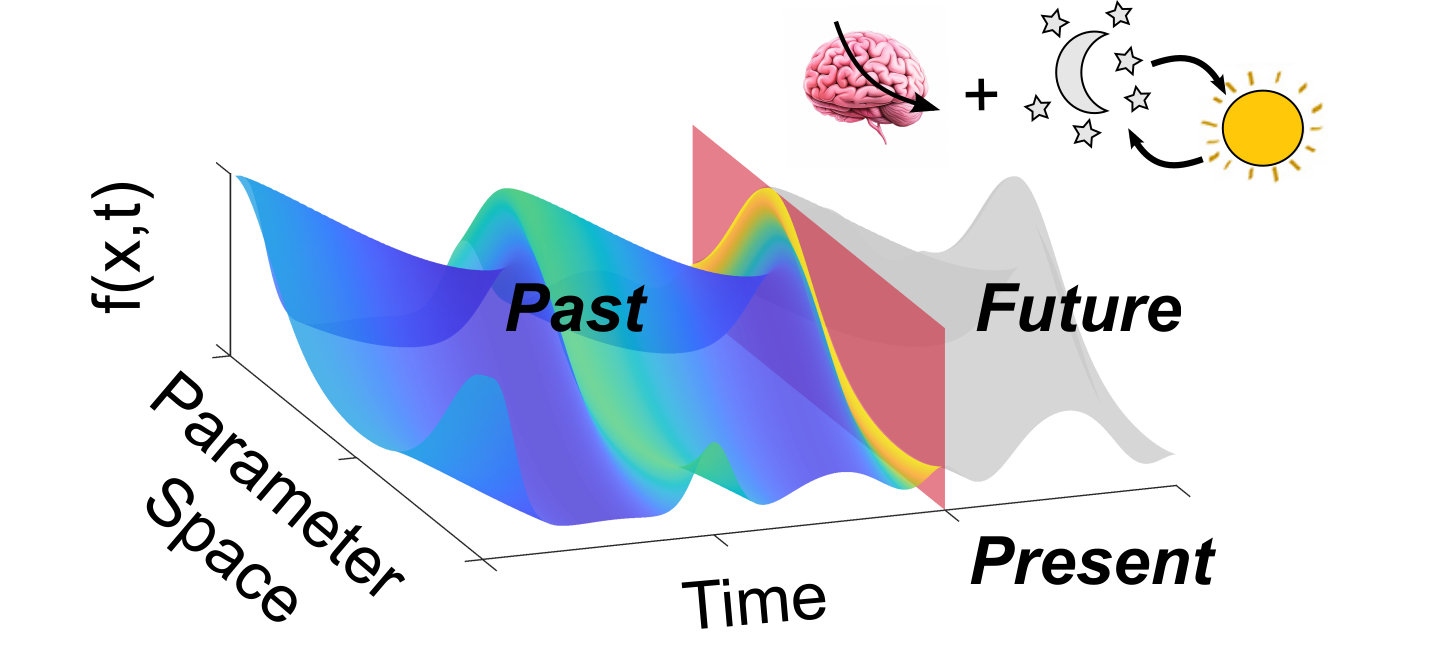From dawn till dusk: Time-adaptive bayesian optimization for neurostimulation.
Optimization of neuromodulation therapies has garnered considerable interest in recent years. To date, proposed optimization strategies do not consider the influence of time-dependent factors on therapy efficacy. Here, we present a Bayesian optimization approach that incorporates knowledge of time-dependent variations, e.g. variations due to biological rhythmicity and/or disease progression, to maintain optimal stimulation parameters overtime.
Stimulation optimization has garnered considerable interest in recent years in order to efficiently parametrize neuromodulation-based therapies. To date, efforts focused on automatically identifying settings from parameter spaces that do not change over time. A limitation of these approaches, however, is that they lack consideration for time dependent factors that may influence therapy outcomes. Disease progression and biological rhythmicity are two sources of variation that may influence optimal stimulation settings over time. To account for this, we present a novel time-varying Bayesian optimization (TV-BayesOpt) for tracking the optimum parameter set for neuromodulation therapy. We evaluate the performance of TV-BayesOpt for tracking gradual and periodic slow variations over time. The algorithm was investigated within the context of a computational model of phase-locked deep brain stimulation for treating oscillopathies representative of common movement disorders such as Parkinson's disease and Essential Tremor. When the optimal stimulation settings changed due to gradual and periodic sources, TV-BayesOpt outperformed standard time-invariant techniques and was able to identify the appropriate stimulation setting. Through incorporation of both a gradual "forgetting" and periodic covariance functions, the algorithm maintained robust performance when a priori knowledge differed from observed variations. This algorithm presents a broad framework that can be leveraged for the treatment of a range of neurological and psychiatric conditions and can be used to track variations in optimal stimulation settings such as amplitude, pulse-width, frequency and phase for invasive and non-invasive neuromodulation strategies.

2023. PLoS Comput Biol, 19(12)e1011674.
2023. Front Hum Neurosci, 17:1111590.
2022. Exp Neurol, 351:113977.

